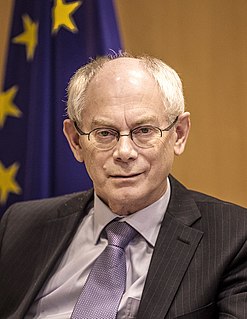
KDE is an international free software community that develops free and open-source software. As a central development hub, it provides tools and resources that allow collaborative work on this kind of software. Well-known products include the Plasma Desktop, Frameworks and a range of cross-platform applications like Krita or digiKam designed to run on Unix and Unix-like desktops, Microsoft Windows and Android.

WebKit is a browser engine developed by Apple and primarily used in its Safari web browser, as well as all iOS web browsers. WebKit is also used by the BlackBerry Browser, PlayStation consoles beginning from the PS3, the Tizen mobile operating systems, and a browser included with the Amazon Kindle e-book reader. WebKit's C++ application programming interface (API) provides a set of classes to display Web content in windows, and implements browser features such as following links when clicked by the user, managing a back-forward list, and managing a history of pages recently visited.

Neelie Kroes is a retired Dutch politician of the People's Party for Freedom and Democracy (VVD) and businessperson who served as European Commissioner from 22 November 2004 to 1 November 2014.

Kontact is a personal information manager and groupware software suite developed by KDE. It supports calendars, contacts, notes, to-do lists, news, and email. It offers a number of inter-changeable graphical UIs all built on top of a common core.

Camiel Martinus Petrus Stephanus Eurlings is a Dutch politician and businessman. A member of the Christian Democratic Appeal (CDA), he served as Minister of Transport, Public Works and Water Management from 2007 to 2010.

Friedrich Merz is a German lawyer and politician. A member of the Christian Democratic Union (CDU), he served as a Member of the European Parliament (MEP) from 1989 to 1994 and was elected to the Bundestag from 1994 until 2009, where he chaired the CDU/CSU parliamentary group from 2000 to 2002. Merz was a candidate in the 2018 CDU leadership election, placing second; he is running again in the 2021 leadership election.
Peter Tomka is a Slovak judge of the International Court of Justice. Prior to his election to the ICJ in 2003, Tomka was a Slovak diplomat.

Akademy is an annual contributors and users conference of the KDE community. Akademy is held at varying venues in Europe.

Herman Achille, Count Van Rompuy is a Belgian politician, who served as Prime Minister of Belgium from 2008 to 2009 and then as the first permanent President of the European Council from 2009 to 2014.

Willem Jacobus "Wim" Eijk is a Dutch prelate of the Catholic Church, a cardinal since 2012. He has been the Metropolitan Archbishop of Utrecht since 2007. He was Bishop of Groningen-Leeuwarden from 1999 to 2012. Before his clerical career he worked as a doctor; as a priest he made medical ethics the focus of his academic studies.

Cornelius Schumacher is a German open source software developer. He was born in Tübingen but lives in Erlangen, Germany.

KDE e.V. is a registered non-profit organization that represents the KDE community in the legal and financial entities. The association supports KDE’s work in cash, hardware, and other donations, and then the use of donations to help the KDE development, but not influence on development. "e.V." stands for "eingetragener Verein" which means "registered association". The three flags on top of the KDE e.V. logo represent the three main tasks of the KDE e.V.: supporting the community, representing the community, and governing the community.

The KDE Software Compilation was an umbrella term for the desktop environment plus a range of included applications produced by KDE. From its 1.0 release in July 1998 until the release of version 4.4 in February 2010, the Software Compilation was simply known as KDE, which stood for K Desktop Environment until the rebrand. The then called KDE SC was used from 4.4 onward until the final release 4.14 in July 2014. It consisted of the KDE Plasma 4 desktop and those KDE applications, whose development teams chose to follow the Software Compilation's release schedule. After that, the KDE SC was split into three separate product entities: KDE Plasma, KDE Frameworks and KDE Applications, each with their own independent release schedules.

KOffice is an unmaintained free and open source office suite and graphics suite by KDE for Unix-like systems and Windows. KOffice contains a word processor (KWord), a spreadsheet (KSpread), a presentation program (KPresenter), and a number of other components that varied over the course of KOffice's development.

Frank Karlitschek is a German open source software developer living in Stuttgart, Germany.
Matthias Kalle Dalheimer is a published author and software consultant from Sweden. He ported the StarOffice office suite to Linux and he was one of KDE’s first contributors. In August 2002 he was elected as president of KDE e.V..
Celeste Lyn Paul is an expert in interface design and usability. She is a contributor to KDE.

Christian Schmidt is a German politician of the centre-right Christian Social Union (CSU).
Gerard-René de Groot is a Professor emeritus of Maastricht University in Comparative Law and Private International Law. He studied law at University of Groningen and at the Westfälische Wilhelmsuniversität Münster (Germany). De Groot obtained the degrees Magister iuris and Doctorandus iuris at Groningen University and taught there 1974–1982. He also obtained the degree of Doctor iuris at Maastricht University. In 1982 de Groot started to teach at Maastricht University and was subsequently appointed as a professor. Since 2007 he has taught at the University of Aruba.















